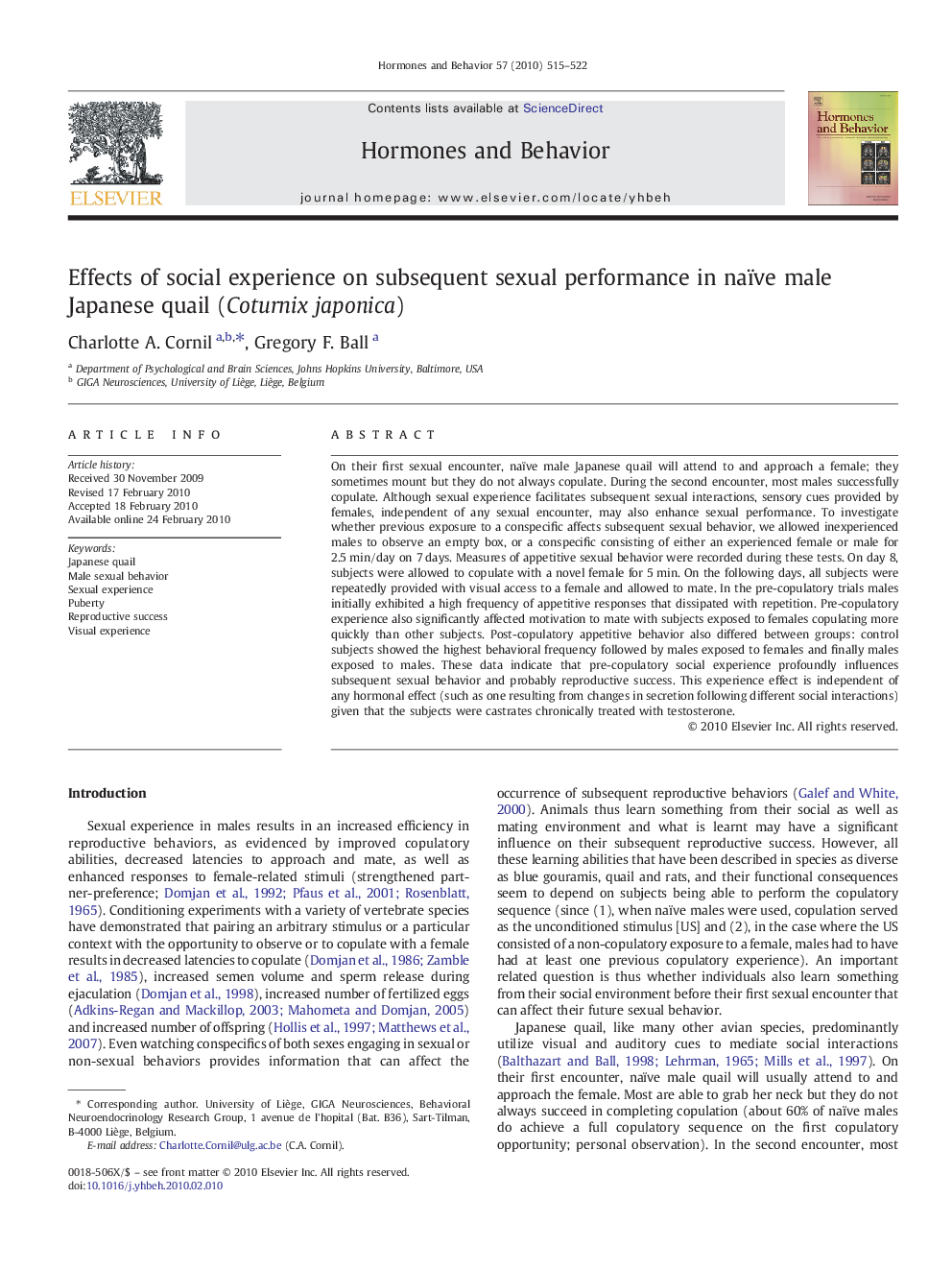| Article ID | Journal | Published Year | Pages | File Type |
|---|---|---|---|---|
| 324121 | Hormones and Behavior | 2010 | 8 Pages |
On their first sexual encounter, naïve male Japanese quail will attend to and approach a female; they sometimes mount but they do not always copulate. During the second encounter, most males successfully copulate. Although sexual experience facilitates subsequent sexual interactions, sensory cues provided by females, independent of any sexual encounter, may also enhance sexual performance. To investigate whether previous exposure to a conspecific affects subsequent sexual behavior, we allowed inexperienced males to observe an empty box, or a conspecific consisting of either an experienced female or male for 2.5 min/day on 7 days. Measures of appetitive sexual behavior were recorded during these tests. On day 8, subjects were allowed to copulate with a novel female for 5 min. On the following days, all subjects were repeatedly provided with visual access to a female and allowed to mate. In the pre-copulatory trials males initially exhibited a high frequency of appetitive responses that dissipated with repetition. Pre-copulatory experience also significantly affected motivation to mate with subjects exposed to females copulating more quickly than other subjects. Post-copulatory appetitive behavior also differed between groups: control subjects showed the highest behavioral frequency followed by males exposed to females and finally males exposed to males. These data indicate that pre-copulatory social experience profoundly influences subsequent sexual behavior and probably reproductive success. This experience effect is independent of any hormonal effect (such as one resulting from changes in secretion following different social interactions) given that the subjects were castrates chronically treated with testosterone.
